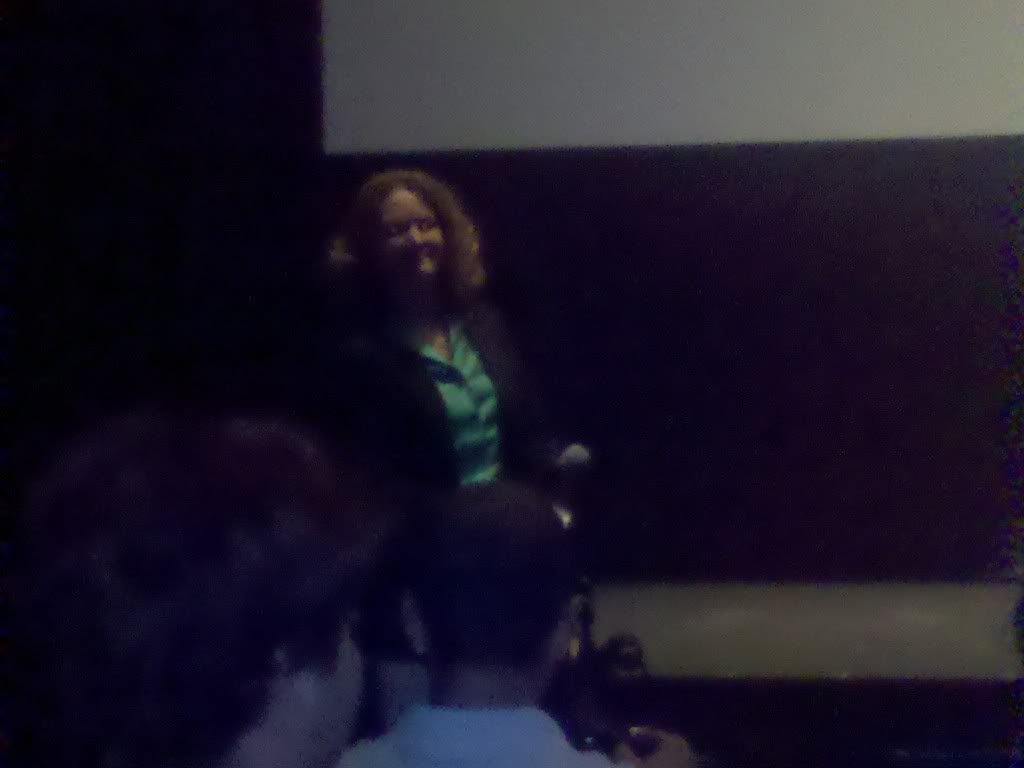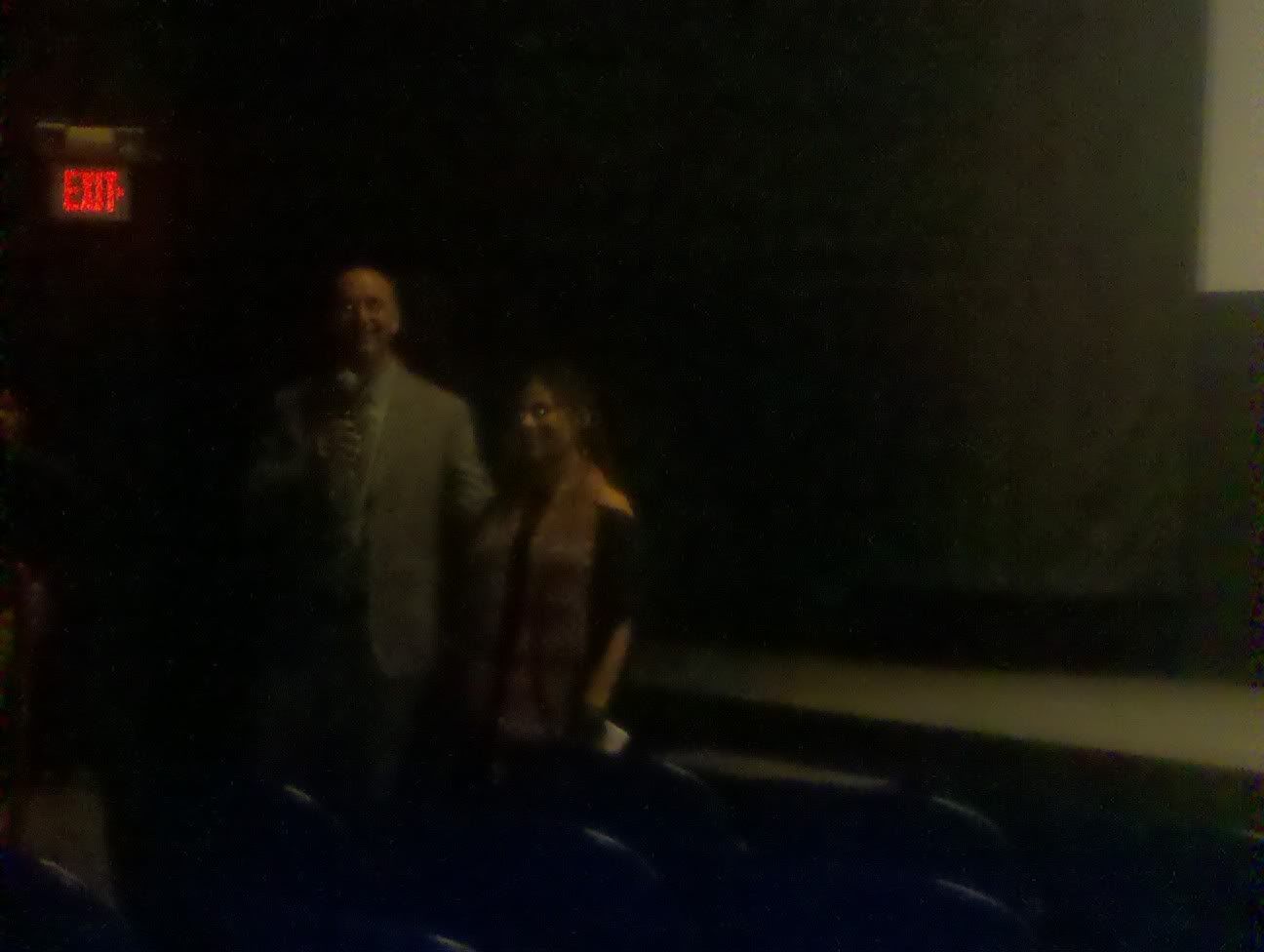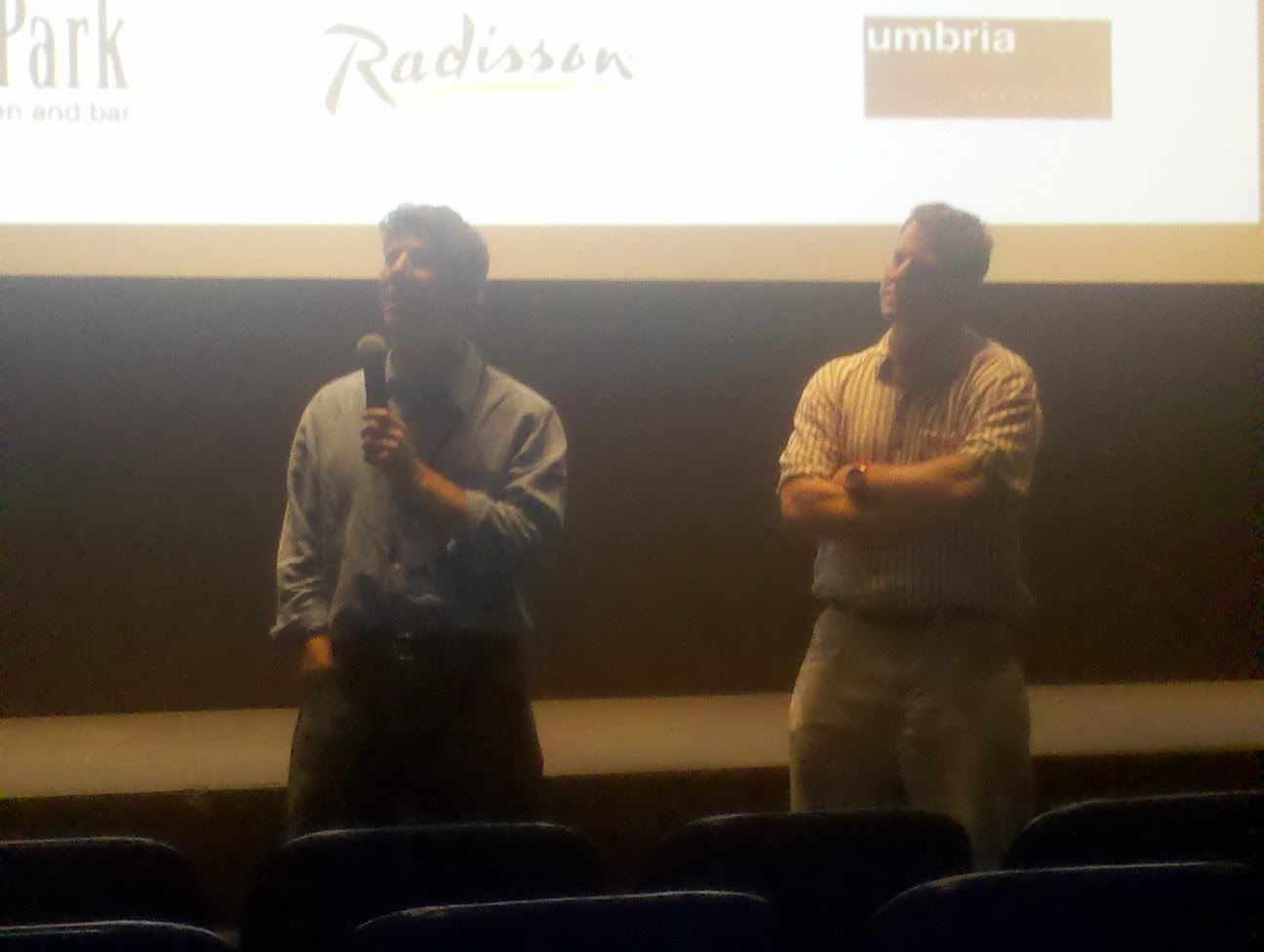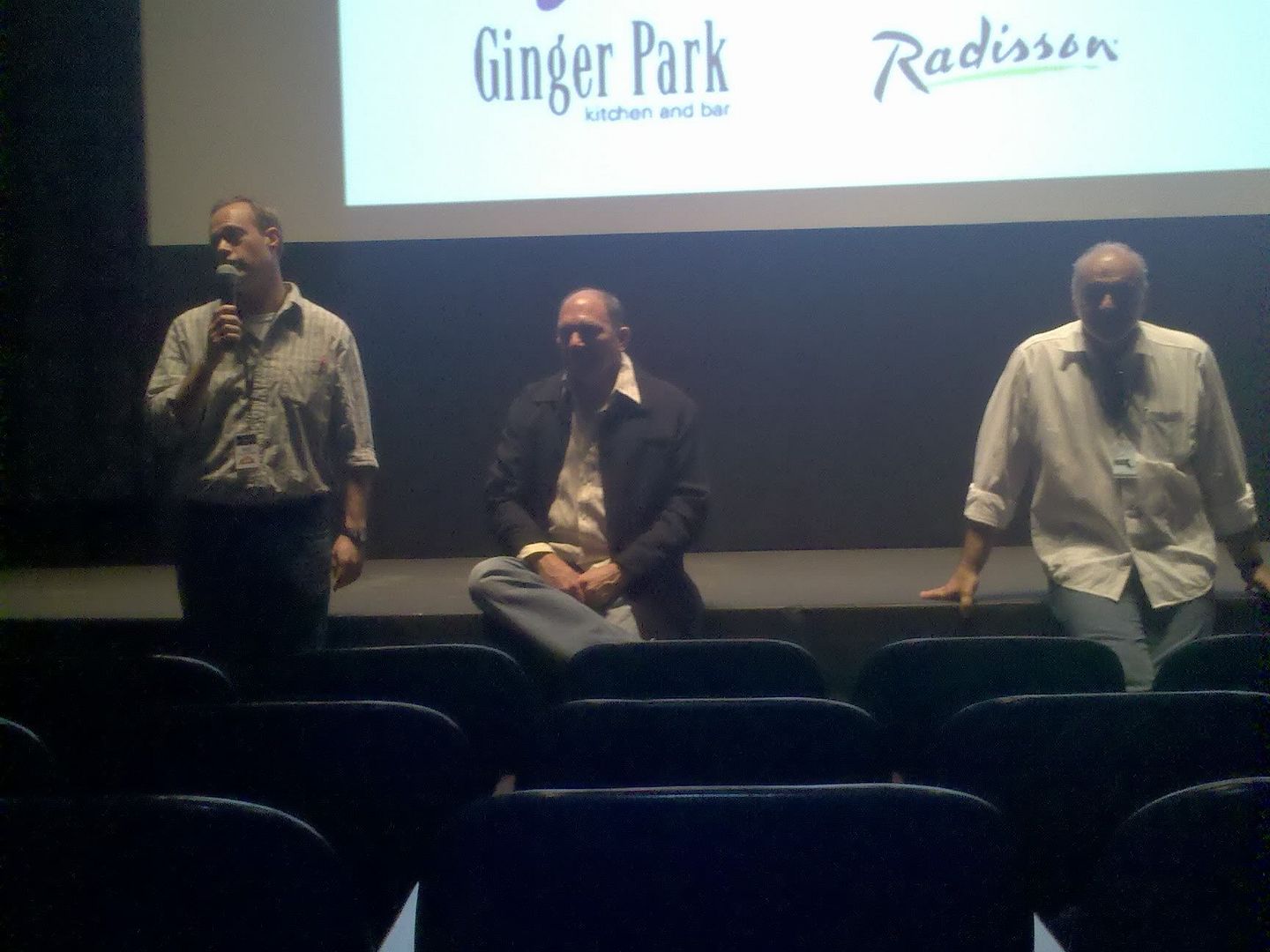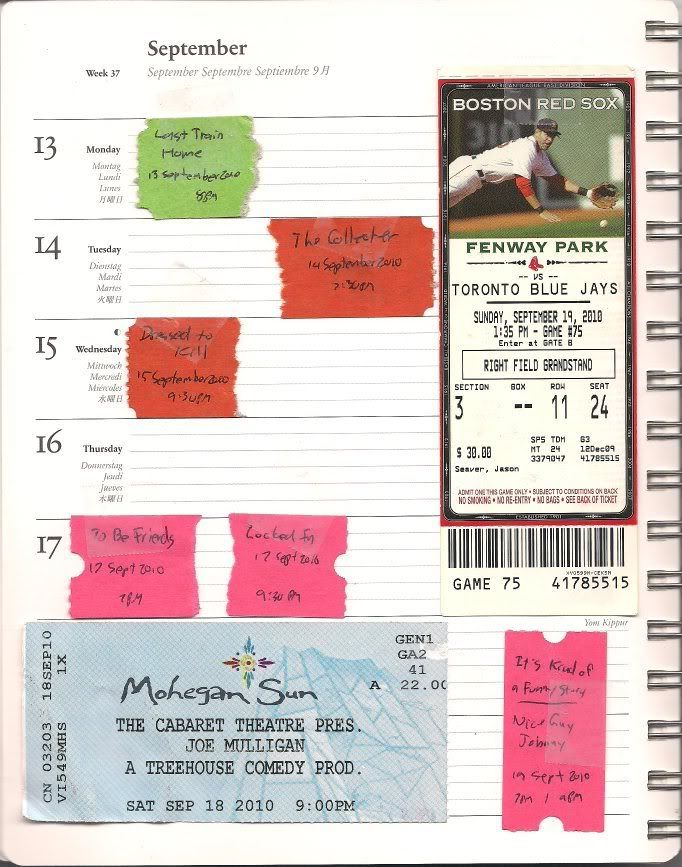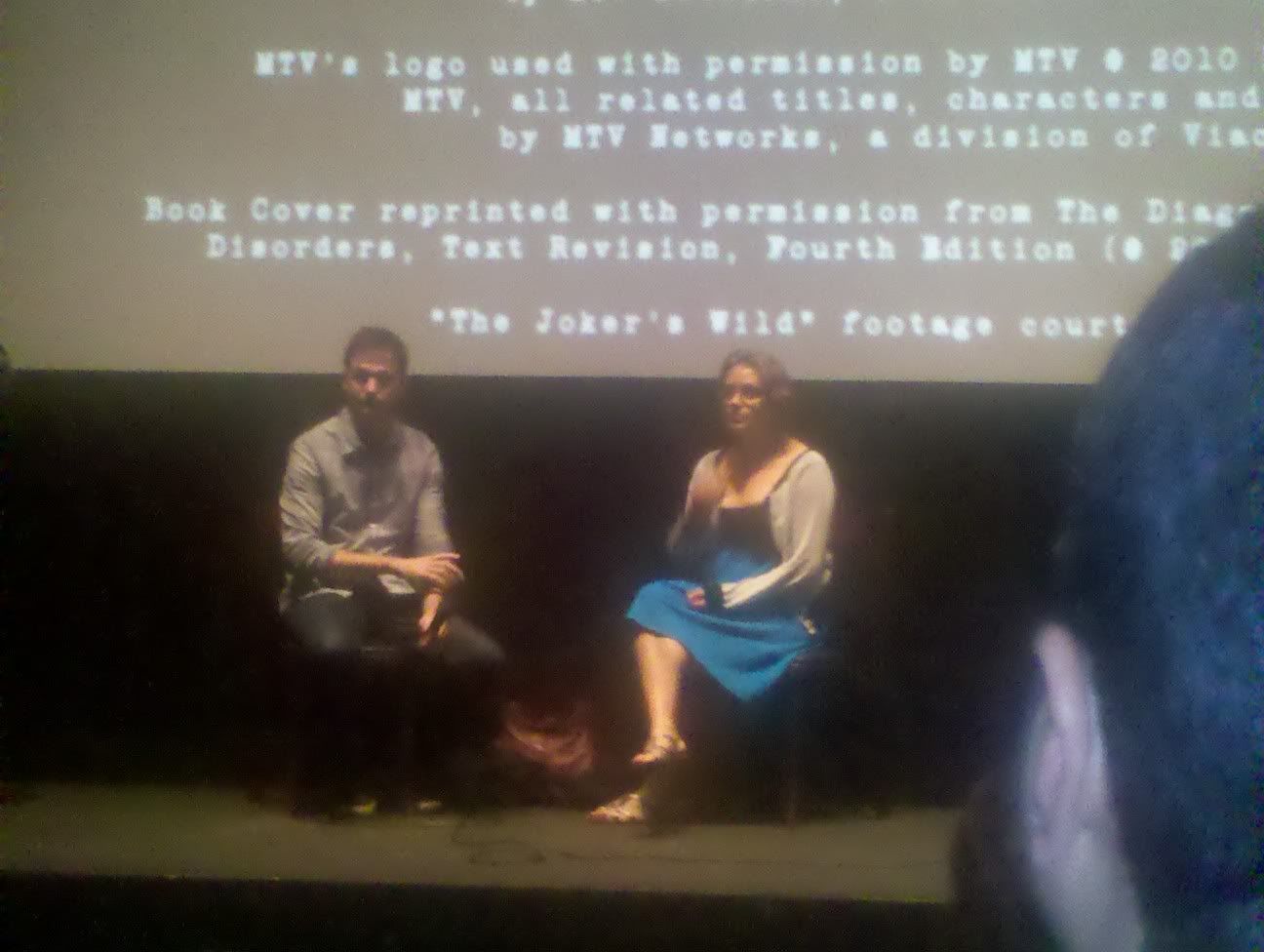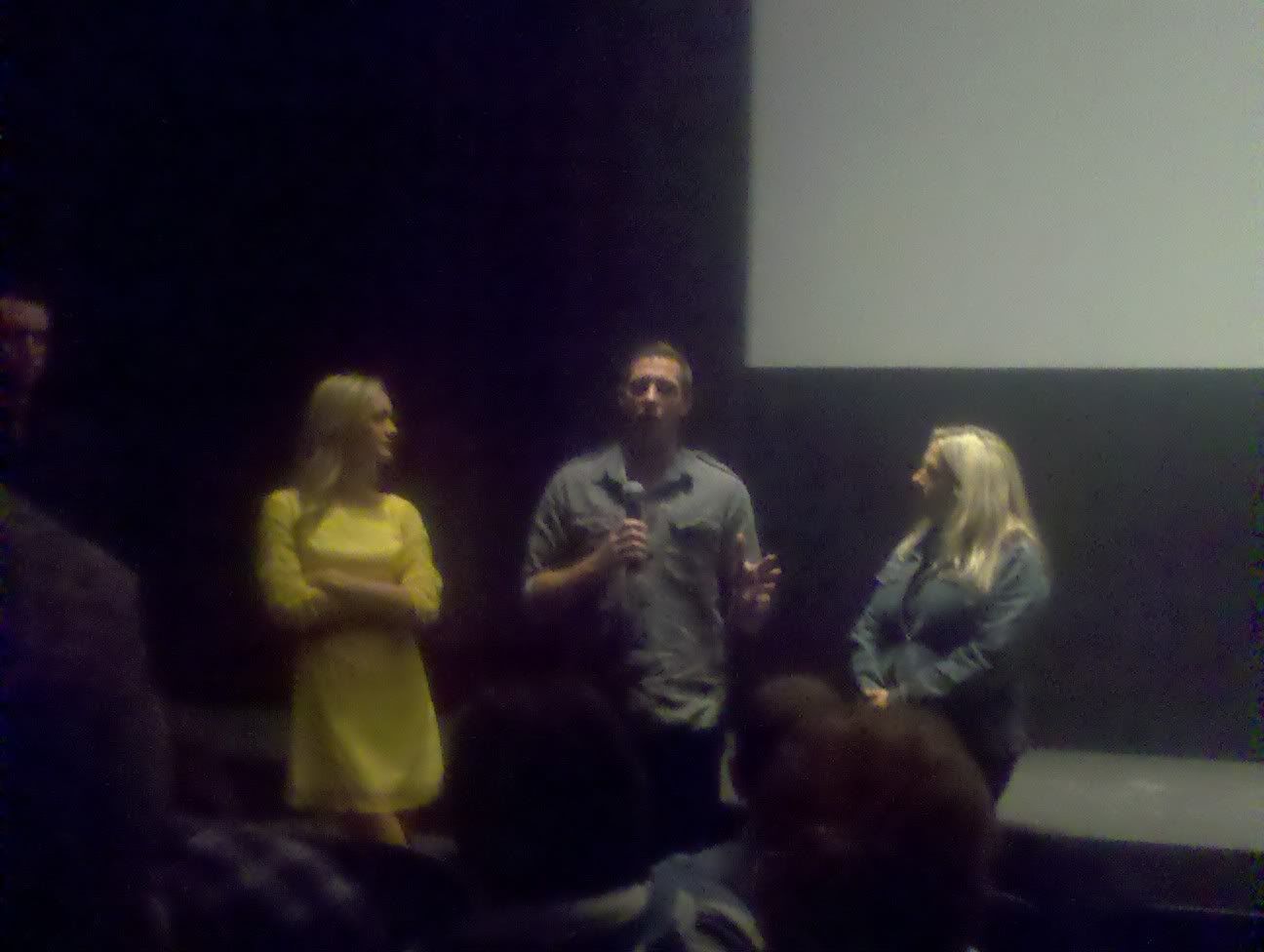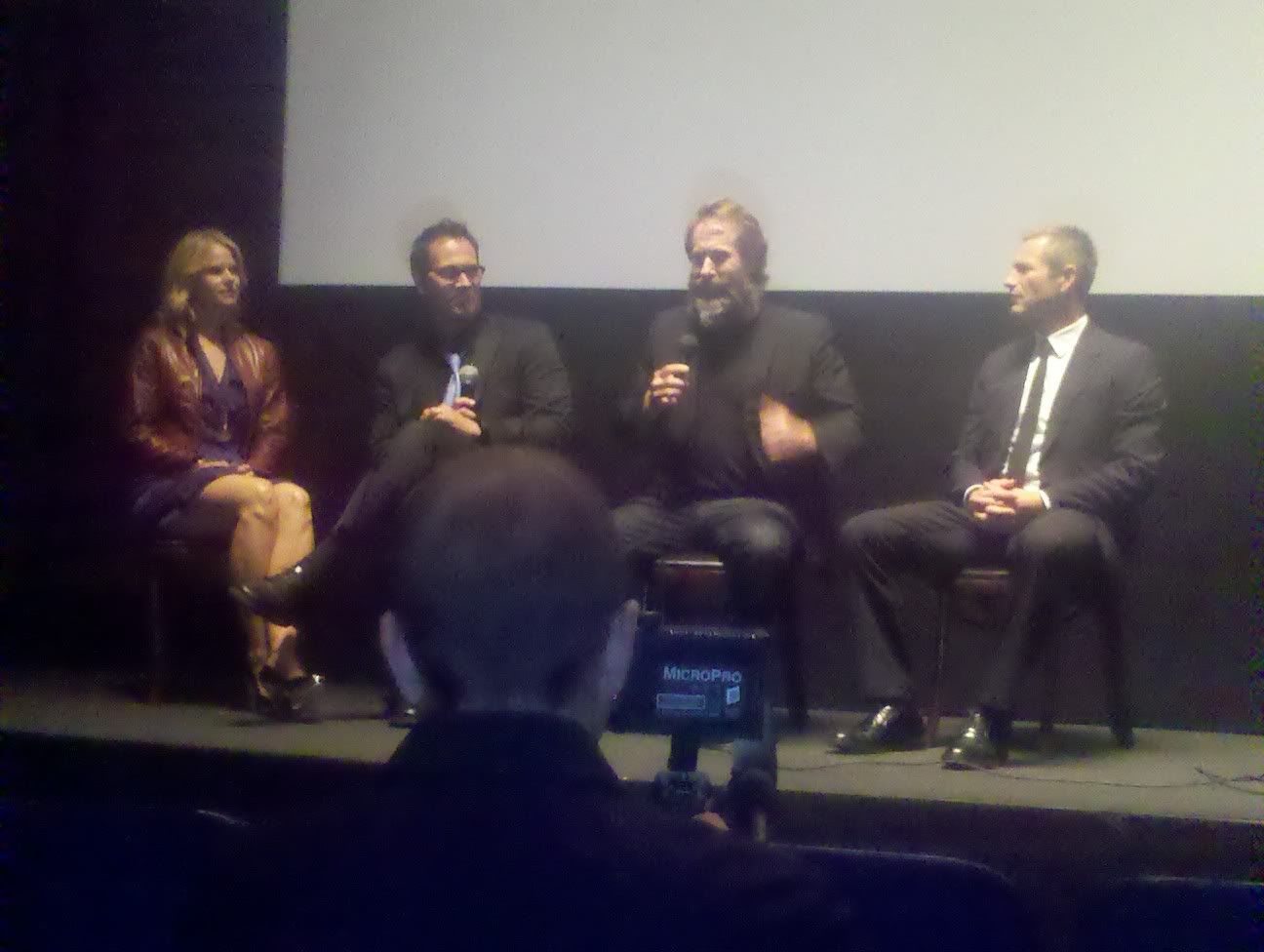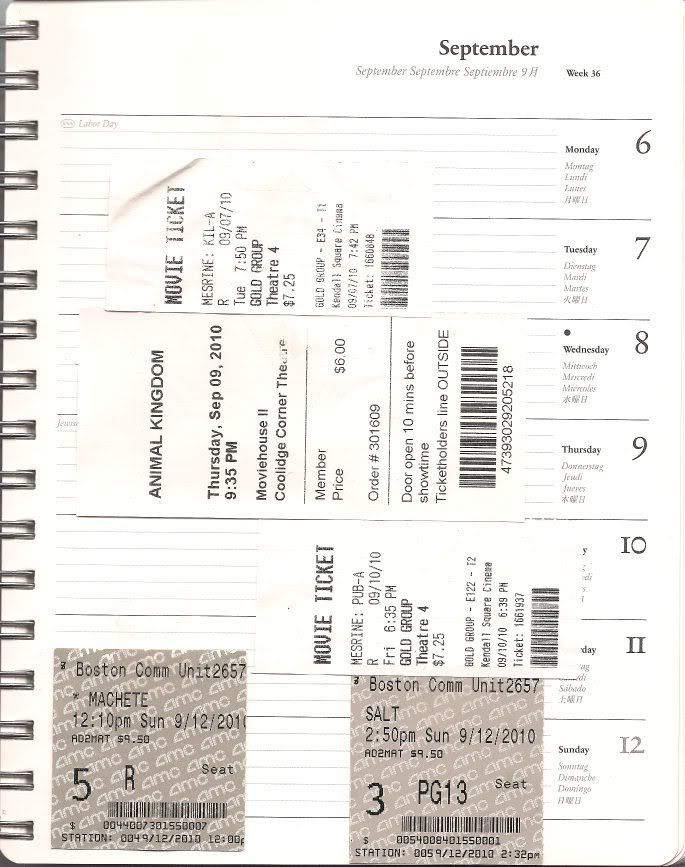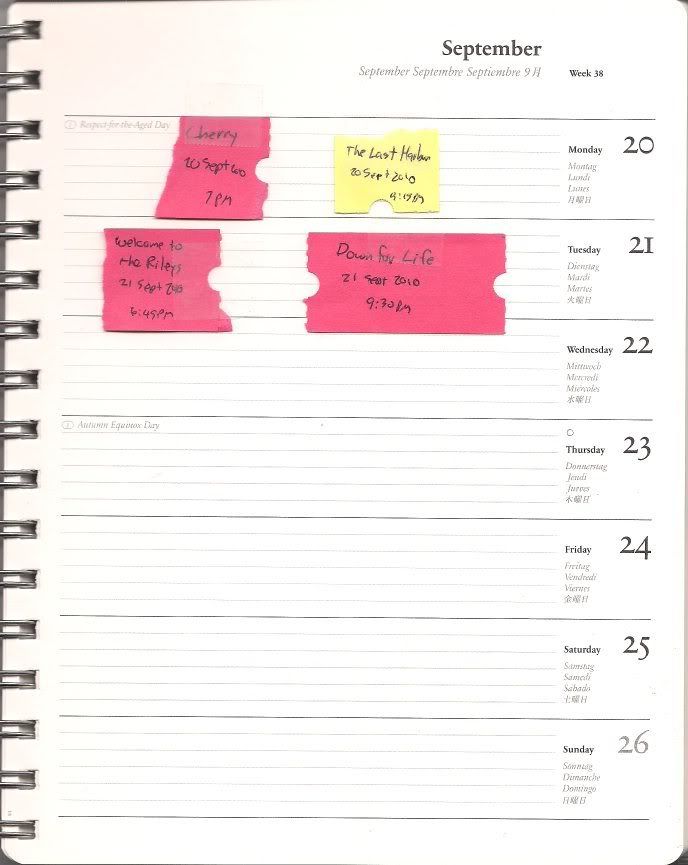
Stubless: Black, White, and Blues (22 September, 6:30pm, Stuart Street); The 5th Quarter (22 September, 8:45pm, Stuart Street), and The Iron Cross (23 September, 7:15pm, Stuart Street)
Since I didn't see anything else this week (I wanted to see God of Vampires at TerrorThon on Sunday, but thought it was playing at 9pm rather than 7pm), and I'll be catching up reviewing the stubless stuff in the next couple of days, here is as good a place as any to vent about the Boston Film Festival.
I washed my hands of it last year after two days, and heard a couple of references to the current incarnation having burned bridges with their prior venues, but came back this year after seeing it put together a potentially interesting line-up. Heck, there are at least three movies I would have liked to have seen (Miss Nobody, Conviction, Arcadia Lost). The films I saw tended to be right around average, with a couple worth a look and a couple stinkers, though.
I've been making a variation on this joke for a couple of years, but after attending this year's festival and following its tweets, I'm starting to suspect there's more truth to it than sarcasm: Festival director Robin Dawson and the rest of the staff really don't seem to be interested in running a film festival. They seem to crave the glamorous surface elements, but the core of a successful festival - bringing interesting films and filmgoing experiences to an audience - is sadly neglected. Compare this festival's schedule to what now must be considered Boston's two most prominent film festivals - April's Independent Film Festival Boston and March's Boston Underground Film Festival - and the younger festivals are light-years ahead, programming multiple screens, snagging films that go on to build great buzz and show up in theaters later in the year. They also form a personal connection between the festival organizers and the audience, presenting and highlighting other films year-round. I daresay that given time, the two genre film festivals run by Garen Daly's Zoetrope Media (February's Sci-Fi Film Festival and the currently-running TerrorThon) will make some of the same strides.
The Boston Film Festival doesn't do that. Within the festival, they don't do the most basic communication, like announcing that the screening of 127 Hours in the program isn't going to happen, updating the website with whether or not certain guests will be present, or telling the folks waiting in the lobby that the film is now seating or why it isn't despite the published start time being fifteen minutes ago. It's unlikely we'll hear anything from them until roughly next August, when they start trying to promote this year's festival again. The introductions to the films do nothing to fire the audience up, and the Q&As the festival staff leads are leaden and superficial. If you look at their site or follow their updates, the focus is strongly centered on the parties and the red carpet - the hobnobbing with celebrities parts. Admittedly, those are the parts of a festival I find least interesting just by my personal nature - I don't drink and have trouble hearing in crowds, so parties do very little for me, and the red carpet seems to be something of a manufactured event. No disrespect to Melissa Leo, who is a fine actress, seemed like a charming lady when doing her Q&A for Welcome to the Rileys, and deserves to be more A-list than she is, but I had to snicker when @BostonFilmFest tweeted two or three times in the afternoon that she would be Walking The Red Carpet that evening. I sort of get the red carpet thing at a big event with many prominent people in attendance, but what's the point of rolling out twenty feet of shag between the curb and a hotel's back entrance for one guest? Is watching that really exciting to people?
But, in a way, that's not a big deal. Different people may have different priorities from their film festival experiences, and if folks living in Boston want to drop $500 for an all-access pass that gives them a chance to hang out with some actors, directors, producers, and other filmmakers (note: this festival is the only one where I've heard a film introduced with "we've got the producer here, and the director, too")... Well, hey, whatever floats your boat. It's your money, and your fun.
What really got me this year, though, is how thoroughly manufactured this is. I laughed opening night, when I checked Twitter from my phone to see them crowing about their "sold-out" screening of Locked In - the stadium was 2/3-full, and I figured they must have been counting the people who bought opening/closing or all-access passes but opted to go to the opening night party or elsewhere instead. Sketchy, but technically true.
Then, the awards were announced, either as the festival progressed or on closing night, and it wasn't so funny. Here are the individual awards:
Best Director — Ed Burns, Nice Guy Johnny
Best Actor — Sam Rockwell, Conviction
Best Actress — Leslie Bibb, Miss Nobody
Best Supporting Actress — Melissa Leo for her three roles in Welcome to the Rileys, Conviction and The Fighter
Best New Actress — Jessica Romero, Down for Life
Best Young Actor — Alexander Newton, Iron Cross
Best Cinematography — Josh Silfen, To Be Friends
Best Screenplay — Rick Bieber, The 5th Quarter
Best Soundtrack — Tree Adams, Black, White and Blues
Visionary Filmmaker Award — Joshua Newton, Iron Cross
Career Achievement — Roy Scheider
Patrons of the Arts — Ernie Boch, Jr.
Now, put aside the most obvious issue, that The Fighter didn't even play the festival (though it would have been a great get, especially if local boy Mark Wahlberg came). Unless I missed my count, only two of the twelve people awarded were not in Boston to pick up their award in person - and Roy Scheider is dead.
Given what a relatively small percentage of cast and crew can often travel to a festival, doesn't that seem a little high? Individual opinions of what's award-worthy are individual opinions, but I would really like to hear the arguments that establish Rick Bieber's screenplay for The 5th Quarter as even good, or explain what, precisely, is "visionary" about the work Joshua Newton did on Iron Cross. Why is Ed Burns being awarded as Best Director, when his work was just sort of adequate, as opposed to Best Supporting Actor, where he was genuinely good? Why isn't there a Best Supporting Actor category at all? Would there have been one if Zach Galifianakis had made the trip to Boston?
It certainly looks like these awards are at least not entirely for the work in making the movie, but partly quid pro quo for making the trip, showing up at parties, etc. And maybe this is a common arrangement. But if it is, other festivals do a heck of a lot more to disguise it. They have audience awards and/or juries whose names and qualifications are published on the website or in the program. These look bought and at least bartered for.
And that's not good. It's rare that you see "Official Selection - Boston Film Festival" on a one-sheet, but not unheard of, especially since one set of words between a pair of laurel leafs looks much like another, and who looks too closely at those, anyway (as Bob Odenkirk spoofed in "The Frank International Film Festival")? But just like quote whores (whom my fellow EFC/HBS writer Erik Childress does a fantastic job of monitoring), festival awards that may not be legitimate devalue a useful way for audiences to try to ascertain the relative quality of the mass of films we have available to us.
A few people getting a little thrill out of meeting Leslie Bibb or seeing Aaron Eckhart walk up a red carpet isn't worth that. And, personally, I hate that the first festival I ever went to appears to be not just lame, but a sham.
